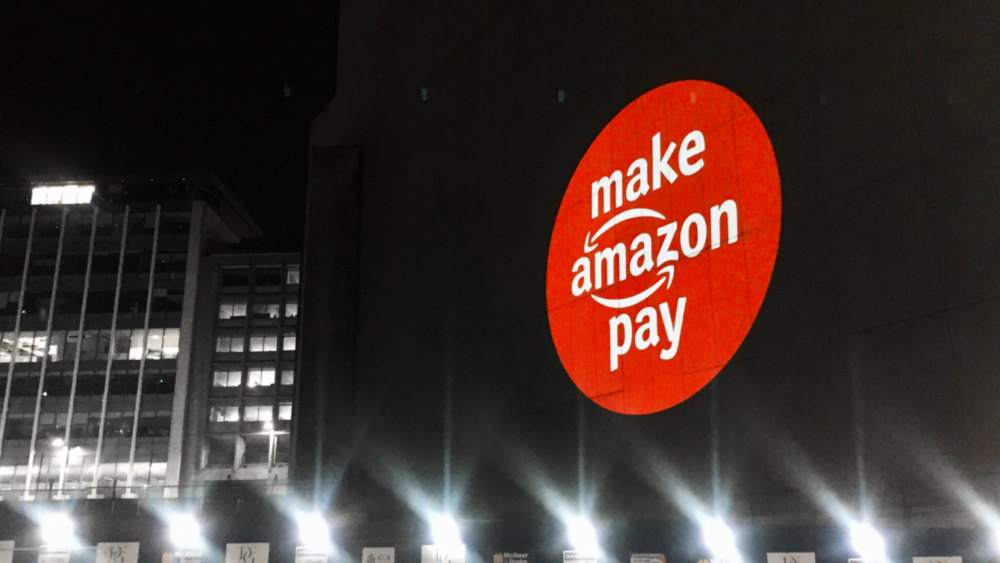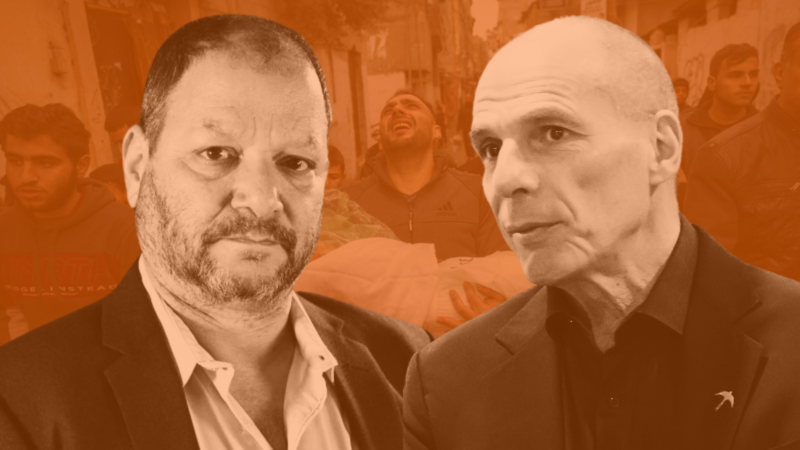“Combatting the anti-democratic wealth acquired by Amazon is the test case of our time.”
The days of immunity and impunity are over. With the popularisation of works such as Shoshana Zuboff’s ‘Surveillance Capitalism‘, the recent Netflix show ‘The Social Dilemma‘ together with the Snowden and Assange revelations — platform capitalism has entered the social lexicon. As the initial shock of the pandemic wears off, the Governmental, societal and Central Bank effect become clearer. Our daily lives have been throttled into the centralised information pipelines and data warehouses that stream our online actions into the hand of already monstrously large digital tech platform monopolists.
However, with this comes a great public understanding and visibility of this fact as people receive more Amazon packs, people interact more online with others through an increasingly censoring tech fiefdoms. Cedric Durand, an economist at Sorbonne in his new book Technofeodalisme places the Digital Age in the larger context of the historical evolution of capitalism to show how the Washington consensus ended up metastasised into the Silicon Valley consensus. A toxic cocktail of ‘Californian ideology’ creatively destroying with monopolies of scale and imposing ‘algorithmic consensus’ with IMF-Style ‘structural reforms’ emphasising ‘flexibilisation’ of work and the outright financialisation of everyday life.
The Progressive International has organised over 200 million members and affiliates while galvanising policymakers to act under the banner of ‘Make Amazon Pay’.
As the pent up frustrations and outright anger grows towards these imposed and unaccountable algorithms and platforms their market incentive to expand and perforates into other markets continues. It’s worth remembering that Peter Thiel once declared, “Capitalism and competition are antagonistic. Competition is for losers.”
This opening salvo from Progressive International is aimed at monopolists who extend the precariat business model, who engage in judicial arbitrage and scoff at paying taxes. But deeper is a fundamental requirement to push-back against an unquenching lust for more power and a greater foothold in the market. Lately the US Tech giants have courted banking, AI medicine, advanced robotics, cloud computing, space exploration to name a few. Umbilically linked to this comes unrivalled political power and, perhaps, the ability to code the future operating system.
The coalition Progressive International has built serves as an ideological town square which encourages the millions of progressives simmering under the artificial air of normalcy during the 2nd European lockdown. Importantly, Varoufakis states that “We need to do what the banker and fascists have done, internationalise.” It is this that the global progressive left needs to rekindle. Human emotions, lived experience and communal benefit — not at the expense of other communities — must reinvigorate and energise the European left and fight the tsunami of financialisation.
Reaching out to the precariat is key to bridging the gap forged by the forces of monopoly capitalism and economic stagnation since 2008.
Yanis Varoufakis beckons that today with unemployment rifling during the pandemic we must listen and care for those viscously thrown by the waist side by political choice. Heeding the lessons from Trump’s rise in 2016 is fundamental to this. We must never leave to the wolves of fascism those that liberals easily disregard as ‘deplorables‘.
Amazon has been described as “best understood not as a retailer but a monopolist empire: a 21st Century East India Company, and no less colonialist in its practices.” Much of today’s corporate swagger resides in essentially pitting Western democracies’ judicial systems against each other and arbitraging the difference. This leveraging of financial power, although nothing novel, positions corporates as power brokers in a ‘buyers market’, able to court politicians with jobs and tax money – in exchange for sweetheart deals.
In the UK as news of the brick-and-mortar Arcadia Empire’s collapses, bringing further gloom to the prospects of the high street, Amazon cements its position as a huge winner of the pandemic with Bezos net worth infamously up by $87 billion in 2020. Varoufakis, in his DiEMTV address states that “Amazon has effectively become the high street” which leads to immense concentration of wealth. Bezos owns more than just the shops, he owns the cobbles in the streets, the benches, the watercooler and the retail space. In this context he earns astronomical money while sleeping.
What is different with the rise and rise of platform capitalism is the inclination towards monopolisation. This leads to accruing a dominating power over people and place, which in turn ushers a techno-feudalism that the over 800,000 pre-pandemic workers know too well. Since then, the monopoly capitalist giant has added over 100,000 new workers to capture the business syphoned from the remaining pandemic crippled retail world.
The global campaign against Amazon on Black Friday hits the monopoly where it hurts as Amazon tries to mirror Chinese “Singles Day” sales numbers. Combatting the anti-democratic wealth acquired by Amazon is the test case of our time. Amazon is semi-visible and has creatively destroyed it’s way into our homes in 24h. But Amazon also hosts almost half of the internet through its most profitable arm – Amazon Web Services.
David Adler describes Amazon, with its vast empire of assets and investments, as an Iceberg hiding a deeper underbelly of activity. Amazon’s operations have become much more visible with the pandemic tunnelling trade through the modern voracious juggernaut of e-commerce. Essentially Amazon uses its huge capital base to overwhelm multiple sectors less visible to the ordinary citizen, such as cargo freight, space contracts, web infrastructure, cloud storage.
We are witnessing the feasting on the edifice of the state, by the international platform monopolists – in a live stream hosted by AWS. Silicon Valley and US Tech giants have been the clear ‘winners’ of the experimental Central Bank policies that have cast a long shadow over the prospects of a vibrant democratic economy.
PI’s campaign against Amazon’s obvious monopoly position is the very spark we have been waiting for to revive popular action.
Furthermore Amazon has deep links with law enforcement entrenching its surveillance capabilities with Ring — the neighbourhood surveillance system partnered with police; not to mention adding to the board Keith Alexander — the ex-NSA man responsible for the bulk mass surveillance in the USA.
At Amazon weaponising surveillance at work against their own ‘associates’ is considered normal and harassing or outright discontinuing work for those deemed showing early signs of unionising activity or considering demanding higher than rock bottom pay.
This has lifted Amazon’s profile in people’s daily lives, and in so doing unveiled the “concealment at scale” which includes regulatory arbitrage of exploiting legal loopholes globally while leveraging their global scale to push down wages, inducing precarity and paying low- tax. During the pandemic, Amazon has made multiple headlines for risking the lives of frontline workers, surveillance and harassment of union-like activity, suppressing worker infections and death rates, and partnerships with law enforcement agencies.
The gangsterism shown by Amazon in dealing with Chris Smalls, by portraying him as a misfit and uneducated oaf they divulged the kind of tactics they are ready to use to achieve their ends. Through the willing blindness of regulators and the adoption of the esoteric market logics by policy makers we have courted these monopolists who trojaned their way into our lives under the guise of ‘innovators’ and ‘entrepreneurs’. With a monopoly position however comes a temptation to push workers towards a global race to the bottom, ultimately in competition with robot work conditions.
All the while Bezos thinks;
“So when it comes to space, I see it as my job – I’m building infrastructure the hard way. I’m using my resources to put in heavy-lifting infrastructure,” he said. “So the next generation of people can have a dynamic, entrepreneurial explosion into space.”
“We have to dramatically lower the cost of access to space.”
Instead of dealing with the enormous imbalances on the ground, Bezos engages in ‘billionaire reality TV’ over who will conquer space first between Musk, Branson and Bezos. He sends tripe platitudes about ‘sending the first woman to the moon‘ on Instagram while managing a business with colossal carbon emissions surpassing over 2/3 of countries around the world despite Amazon’s pledges not to mention the deep imbalances in worker rights.
The voracious appetite for expansionism and juridical arbitrage has left thousands of families teetering in precarity as artfully captured in Ken Loach’s “I’m sorry we missed you”. This pushback against a corporate mechanisation of the race to the bottom is encapsulated by Cameroon philosopher Achille Mbembe as a ‘universal right to breathe’: “A principle that means, unless others everywhere can breathe, my ability to do so is at risk.”
Watch the DiEMTV episode with Yanis Varoufakis
Subscribe to DiEM25’s Youtube Channel to watch more episodes!
Photo Source: The Progressive International on Twitter.
Do you want to be informed of DiEM25's actions? Sign up here















